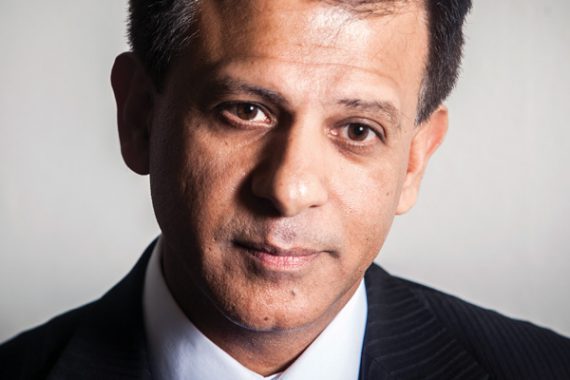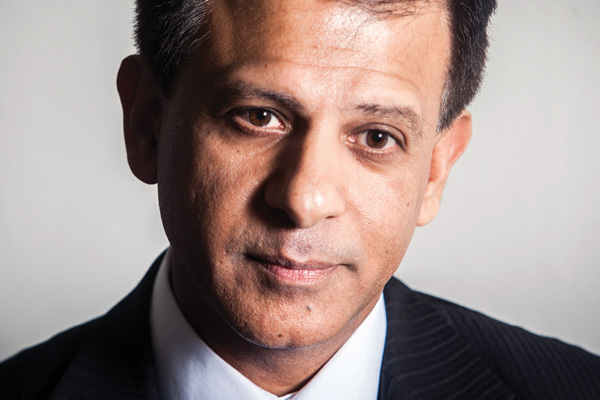Dr Chaand Nagpaul: ‘We need action to eradicate this inequality’


In the aftermath of the case of Dr Hadiza Bawa-Garba concerns about the impact of racial bias on the treatment and careers of black and minority ethnic (BME) doctors have come sharply back into the spotlight.
The disgraceful treatment of the Windrush generation – a generation who have contributed so much to the NHS since its foundation 70 years ago – is a harsh reminder that we cannot assume that BME contributions will be recognised and rights respected.
The 25th anniversary of the murder of Stephen Lawrence, which revealed and labelled institutional racism in our public services, is a time to reflect on how the way we approach race equality has changed – and how much work there is still to do.
BME doctors are more likely to face referral to the General Medical Council, are more likely to have their cases investigated and are more likely to face harsh sanctions following an investigation. The GMC has carried out numerous reviews and audits of the fairness of its fitness-to-practice proceedings over the years. These have not revealed evidence of bias in its decision-making.
It is time for us to focus on what we know needs to change
But many BME doctors live in fear that their race puts them at greater risk of being blamed, disciplined and sanctioned when things go wrong. Before Dr Bawa-Garba’s case, polling for the GMC found that most BME doctors (60%) thought that BME and non-UK qualified doctors were more likely to be treated unfairly when fitness-to-practise concerns are investigated.
The announcement this week of a further review, led by two academics with expertise in race equality, Roger Kline and Doyin Atewologun, is welcome news. But we must see action too.
It is four years since BAPIO’s high court challenge to the RCGP and the GMC using the public sector equality duty that formed part of Stephen Lawrence’s legacy. They argued that both parties had failed to discharge the equality duty by not taking sufficient steps to address the lower pass rates for BME doctors in the Clinical Skills Assessment test. The case firmly put the issue of differential attainment in medical education and training on the agenda. It has led to action from the GMC and some with responsibility for medical education to consider how they can better support BME trainees. Again, this is welcome. But the attainment gap that BAPIO challenged still persists today, which begs the question is what’s happening enough?
The latest Workforce Race Equality Standard has shown the ‘Snowy White Peaks’ of the NHS, which Roger Kline described in 2014, firmly remain. Only 7% of very senior managers are from BME backgrounds while at least a third of NHS doctors are – and an even higher proportion of medical students. Staff surveys show that BME staff in the NHS are twice as likely to be affected by discrimination at work and are at increased risk of experiencing bullying and harassment from both colleagues and patients.
These injustices cannot continue. We need to acknowledge them and to secure concerted action to speed up change. We have known about many of these inequalities for years now. Research has been carried out already in many areas to understand the causes. It is time for us to focus on what we know needs to change and to work together to identify and implement effective actions that will deliver a more supportive and inclusive environment, so that the incoming generation of BME medical students and doctors can be assured that their race, ethnicity or nationality will not be a barrier to their opportunities or recognition. This is essential for the workforce but also for patient care and the quality of healthcare services. As Professor Jeremy Dawson concluded in recent research on the treatment of BME staff and patient satisfaction ‘the extent to which an organization values its minority staff is a good barometer of how well patients are likely to feel cared for’.
We have come a long way in the past decade in exposing the inequalities affecting BME doctors in the NHS, which have finally been widely acknowledged. However, what matters now is what will be done to eradicate this inequality and make lasting change
That is why the BMA will be holding a summit in July bringing together BME doctors, medical students and medical leaders with key stakeholders and experts to take stock of progress on race equality, and come up with clear recommendations and an action plan to tackle continuing racial bias.
BME doctors make an invaluable contribution to the health service. We owe it not just to them, but also to the patients they serve to ensure they are never treated with anything less than the utmost respect and fairness, and that they are given the same opportunities and rewards to achieve their full potential for the good of the NHS.
Dr Chaand Nagpaul is BMA chair and a GP in north west London
Pulse October survey
Take our July 2025 survey to potentially win £1.000 worth of tokens










